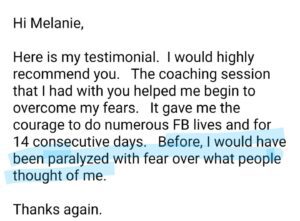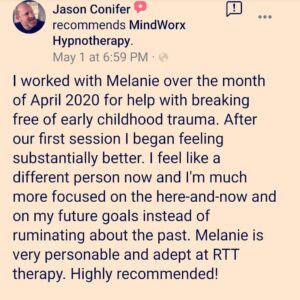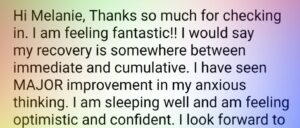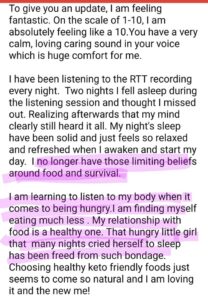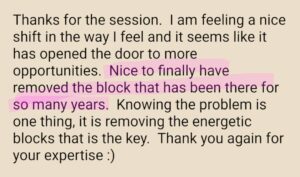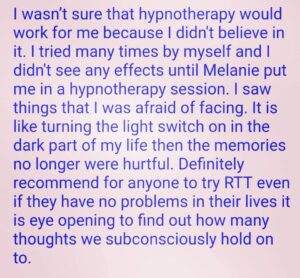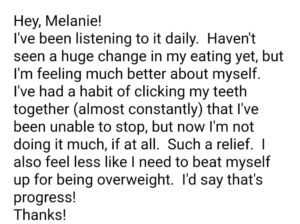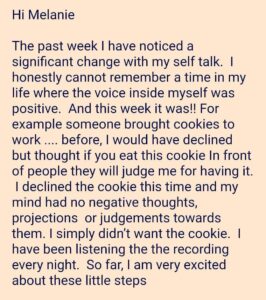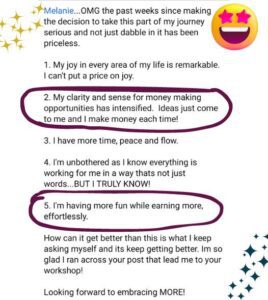Client testimonials who have experienced Hypnotherapy either at MindWorx, or via online video conference.
As a Rapid Transformational Hypnotist and medical hypnotherapist, Melanie McCool, C.Ht. helps people resolve many issues, usually in 3-6 sessions.
RTT is a self-contained therapy that has a framework of hypnosis but includes several powerful tools, including Hypnotherapy, Neurolinguistic Programming (NLP), and Cognitive Behavioral Therapy, that can result in breakthrough or transformation.
Whereas hypnosis can be used to make suggestions that if accepted will change behaviors, RTT can be used to find root causes of behaviors and then change limiting beliefs that eliminate behavior most effectively.
Consider MindWorx Hypnotherapy for:
- Cancer & Immune Disorders
- Fibromyalgia & IBS
- Eating Disorders & Diet Issues
- Chronic Pain
- Allergies & Asthma
- Autoimmune
- Anxiety, Panic Attacks
- Depression
- PTSD
- High Blood Pressure
- ADD/ADHD
- Insomnia
- Addiction
- Tinnitus
- Infertility
- Skin Conditions
- Pregnancy and Childbirth
- Fears & Phobias
- Diabetes
- Dysautonomia
- Self-esteem and Self-worth
- Money & Success Blocks
- Discover Life’s Purpose
- Public Speaking
- Procrastination
- Relationships
- Salesmanship
- Job, Sports, Artistic Performance
- Adoption Trauma
- Childhood Trauma
- Clearing Karma
- Religious Guilt
- Grief/Loss
- Anger Control
- Learning & Study Skills
- Test Anxiety
- Memory
- Nail Biting
- Smoking Cessation
- Stress Management






